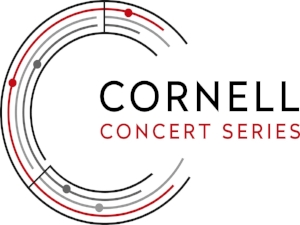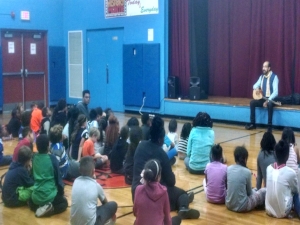workshops & consultation
How can music help you?
“If participation in church is a choice rather than a social default, how are vibrant congregations optimizing music to create connections?”
is growth an Aspirational goal or reality in your faith community and personal practice?
how can music impact social and sacred identities?
For the last 20 years, Dr. Deborah Justice has been studying how people use sound to make sense of their worlds. She can help you and your community understand the musical choices you are making, as well as take actions to optimize potential outcomes. Her recent book focuses mainline Protestantism in North America, but its underlying questions about musical immanence and musical transcendance face worshippers from every tradition.
take action
SINGLE SESSION: In one session, Dr. Justice will help you explore the ideas of musical immanence and musical transcendance, as well as introducing basic elements about sonic (musical), social, and sacred identities. She will guide you in interactive conversations about how music and worship are experienced in your community. Specific questions include:
—What role does music play in your congregation?
—What have the major issues facing your church been and what are those today?
—How can musical choices make your faith community more vibrant and impactful?
Ideal for a single Sunday School class or Adult Education session.
This session can be done with or without participants having read (White)Washing.
MULTIPLE SESSIONS: Dr. Justice helps participants have deep discussions about their musical values and choices. Tailored to your congregations needs.
—What role has music played in the history of your congregation? Now? How does that look when future-facing?
—What have the major issues facing your church been? What are those issues today?
—How can musical choices make your faith community more vibrant and impactful?
—How do your specific personal realities relate to national trends, historical trajectories, and congregational goals?
For these sessions,Dr. Justice will suggest sections of (White)Washing to read to help ground conversations.
iN-DEPTH BOOK DISCUSSION: Single or multiple sessions. Ideal for Sunday School classes and book discussion groups. A full, interative conversation of (White)Washing Our Sins Away with Dr. Justice. Working with the book materials helps participants take a closer look at how the sonic, social, and sacred arenas relate to the experience of worship.
“Workshops and consultations to help your congregation explore how its sonic, social, and sacred identities are entwined. ”
THE BOOK
(White)Washing Our Sins Away: American Mainline Churches, Music, Power, and Diversity
https://sunypress.edu/Books/9/White-Washing-Our-Sins-Away
Analyzes how White American mainline Protestants used the internal musical controversies of the turn-of-the-millennium Worship Wars to negotiate their shifting position within the nation's diversifying religious and sociopolitical ecosystems.
What if simply changing musical styles could resurrect social power and religious vitality? By the early 1990s, Christianity was losing ground nationally, and mainline Protestants were trending even Whiter and older than America's overall demographic trajectory. The churches knew they needed to diversify. Yet, many mainline churches focused their energies on the so-called Worship Wars, intense aesthetic and theological controversies running through much of White Christian America. Historically, churches had only supported one musical style; now, many mainline Protestant congregations were willing to risk internal schism to support both Contemporary worship—centered around guitars, praise bands, and choruses—and Traditional worship with its pipe organs, chancel choirs, and hymns. Surely, they thought, musical diversity would broadcast tolerance and bring in new members—perhaps it would even help them regain their historically central role in American society. Based on years of ethnographic research, (White)Washing Our Sins Away explores how American mainline Protestants used internal musical controversies to negotiate their shifting position within the nation's diversifying religious and sociopolitical ecosystems.
Reviews
“An ambitious work in the vein of decolonizing ethnological disciplines, that is, in redressing the emphasis on aestheticized marginalized cultures... the book addresses an important interface that provides benefits both to ethnomusicology and to American society in general.”
John Bealle, Urban Appalachian Community Coalition, published in Journal of Folklore Research Reviews
“Ultimately, (White)Washing Our Sins Away offers an excellent account of musical identity formation and its significance for spiritual experience. Its detailed parsing of the ways in which musical practice had unexpected consequences for congregational identity demonstrates how important music is to the study of religion. It pinpoints the tensions within mainline Protestantism’s identity in an era of numeric decline. The book is honest in its grappling with the way in which racist legacies continue to inform the communities, both religious and academic, to which Justice is committed. This honesty lays the groundwork for further critical engagement with both ethnography and mainline Protestantism.”
Dirk von der Horst, Mount St. Mary’s University, Los Angeles, published in Reading Religion, a review publication by the American Association of Religion
Dr. Justice has presented ideas from her new book, (White)Washing Our Sins Away, at:
The Yale Institute of Sacred Music
The Julliard School
Syracuse University
Indiana University
Wesleyan University
Amherst College
The Society for Ethnomusicology
The American Musicological Society
International Associaltion for the Study of Popular Music
First Presbyterian Church, Ithaca, NY
Dutch Neck Presbyterian Church, Princeton Junction, NJ
Dr. Justice is an ethnomusicologist and musician. Critical questions arising from her own music-making led her to study how people use music to make sense of the social worlds around them. As a result, her research draws on interdisciplinary scholarship—from ethnomusicology and sociology to media studies and architecture—to interrogate constructs of “American-ness” and ethnicity by investigating the changing musical, spiritual, and demographic borders of communities. Her work has been featured in The Oxford Handbook of Music and World Christianities, Routledge Press’ Congregational Music Studies series, collections in cultural geography from Springer Press, The Yearbook for Traditional Music, as well as other peer-reviewed publications and conference presentations. Justice has taught at the Yale Institute of Sacred Music, Syracuse University, and Wesleyan University.















